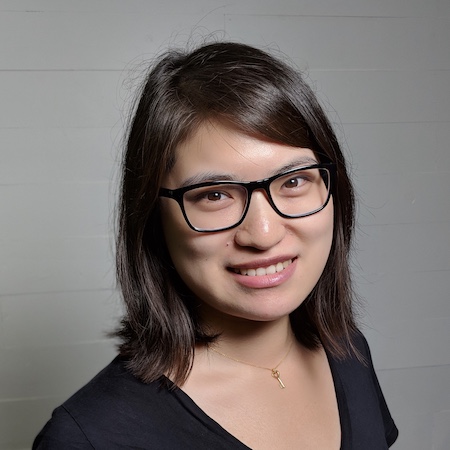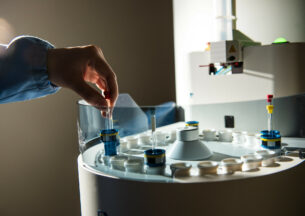PhD Student Yi Ding Receives CRA Computing Innovation Fellowship

When times are tough for graduating computer science PhD students, the Computing Research Association and the Computing Community Consortium activate a special program: the Computing Innovation Fellowship, or CIFellows. With the COVID-19 pandemic disrupting the economy and job market, the program was revived this year for the first time since the economic crisis of 2008-09. And among the recipients of the program’s two-year postdoctoral funding was Yi Ding, 5th-year PhD student in Associate Professor Hank Hoffmann’s research group.
At UChicago CS, Ding studies the intersection of statistics and machine learning, working with Hoffmann and Associate Professor Risi Kondor in computer science and Assistant Professor Panos Toulis at the Booth School of Business. Her work focuses on applications of machine learning and causal inference in computer systems optimization and experimental design, and using statistical methods to develop more interpretable forms of machine learning.
“The difference between machine learning and causal inference is that, when doing machine learning, people mostly focus on prediction,” Ding said. “But now people want to ask new questions about why or what causes this outcome, how to distinguish causation from correlation, and what would be the outcome if something did not happen. So this is how causal inference comes into the field. Causal inference is about understanding the underlying structure of the problem, more than just prediction.”
With Hoffmann, the method is specifically applied to trade-offs between performance and energy efficiency in computer architecture. Hoffmann’s group develops approaches such as CALOREE and “Divide and Conquer” that combine machine learning and concepts from engineering and theoretical computer science to create self-aware and adaptive systems that balance compute speed and energy consumption.
In a paper for the 2019 International Symposium on Computer Architecture (ISCA), Ding, Hoffmann, and Nikita Mishra showed that improving machine learning model accuracy alone in a computer system did not improve system performance and efficiency, suggesting that examining the structure of the problem could lead to more meaningful improvements. New work under submission aims the combination of machine learning and causal inference at parallel computing to more precisely predict “straggler” tasks that can slow down overall performance.
In collaborations with Toulis, Ding has published research on using causal inference for analyzing policy outcomes and developed new randomized study design methods for temporal experiments, such as online advertising and clinical trials.
Ding plans to graduate by the end of the year and start her postdoctoral position in 2021 under the mentorship of Michael Carbin at MIT EECS. There, she will bring her expertise in machine learning and causal inference to the domain of programming languages, working with Carbin on developing new compilers and approximate computing methods.
Since joining the department in 2015, Ding has also been very active in UChicago CS student organizations, serving as co-chair of the department’s Graduate Women in Computer Science (GWICS) chapter and “Prime Minister” of the graduate student ministry. As she has watched the department grow in both number of faculty and students, she credits the culture of UChicago CS with supporting and improving her work.
“We can only do good research when we are happy and enjoy life,” Ding said. “So I think all of these things are connected.”












